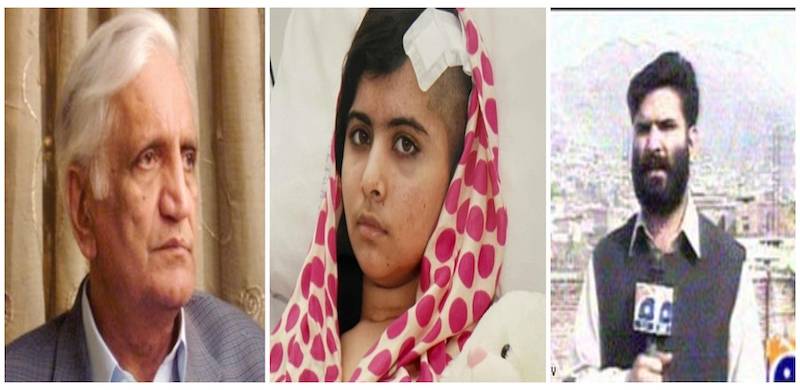
In a recent interview to the Middle East Eye, Prime Minister Imran Khan claimed that the Taliban are a Pashtun movement and that Pashtuns sympathise with the militants because of their ethnic identity. This is not the first time he has made such claims.
The prime minister issued similar remarks in his address to the United Nations recently and in recent interviews. His claims appear to be a part of an effort to portray the Taliban as some sort of a Pashtun nationalist movement. As a Pashtun and as someone who considers the Taliban to be nothing more than terrorists with no political base in Afghanistan and in the Pashtun regions of Pakistan, I find such claims to be ludicrously ridiculous.
And it is not just me. Pashtuns have been reacting to the PM’s statements and have been sharing their disgust, disappointment and shock at the prime minister's baseless claims that are far from the truth. The PM’s remarks have been termed tantamount to rubbing salt into the wounds of Pashtuns who have suffered the most because of Taliban’s terrorism and who have lost the most in the War on Terror.
Over the last three decades or so, the Taliban have been targeting and killing Pashtun nationalist political activists and leaders in Pakistan. The attacks on the Awami National Party (ANP) have been widely reported on and documented. Similarly, the Taliban’s killing of ordinary Pashtuns in the newly merged districts of Khyber Pakhtunkhwa in particular and the killings of thousands of Pashtuns in Khyber Pakhtunkhwa and elsewhere in the country have also been reported on in a lot of detail.
The Taliban could form their bases in areas of ex-FATA and specially in Waziristan after killing hundreds of local elders. Our lands were outsourced to them as part of the larger strategic depth policy objectives. Hundreds of thousands of Pashtuns have been forced to leave their homes and become Internally Displaced Persons (IDPs) because of terrorism and the ensuing military operations. Many of these Pashtun IDPs continue to live miserably and in some cases, they have been forced to live in caves like the Kukikhel Afridis who were displaced from Rajgal, Tirah and who have been living in caves in Ali Masjid, Jamrud in the newly merged district of Khyber.
The areas of ex-FATA have remained the epicenter of terrorism and War on Terror. Many local Pashtun tribes have resisted and fought against Taliban and other local and international terrorist groups including Al Qaeda and others who were imposed on the region over the years. In many cases, the Pashtuns have had to resist these terrorists on their own. The national media provided little to no coverage to this resistance and the country's mainstream has yet to acknowledge the sacrifices of these Pashtuns who have been suffering for decades.
It is within this context that the Pashtun Tahaffuz Movement (PTM) came into existence in 2018. PTM comprises young Pashtun activists from ex-FATA who have given a voice not only to the Pashtuns of their areas but who have also spoken out against the state’s flawed policies that have engulfed the country in a perpetual state of war, the brunt of which has been borne by Pashtuns.
Many local Pashtun tribes have resisted and fought against Taliban and other local and international terrorist groups including Al Qaeda and others who were imposed on the region over the years.
The peaceful movement for rights and justice has demanded the forming of a Truth Commission to ascertain the facts about the War on Terror and about terrorism in the region. Instead of listening to them, they have been harassed, arrested, jailed and in some instances, killed, for speaking truth to power. Ali Wazir, one of the leaders of PTM and an elected Member of Parliament from South Waziristan, have been in jail in Karachi since his arrest on trumped up charges in Peshawar on the 16th of December, 20202. Ali Wazir’s family has suffered far more than most at the hands of Taliban’s terrorism. He has lost more than 15 members of his family to targeted attacks. Instead of engaging such Pashtuns, the state has chosen to intimidate and harass them into silence.
Less than a month ago, in an interview to CNN, the prime minister while advocating for the Taliban in Afghanistan, claimed that the notorious Haqqani Network is actually a Pashtun tribe in Afghanistan, which they are not. He was called out for this ill-informed statement on social media. For someone who does not even know that the Haqqani Network is not named after a Pashtun tribe but after the Haqqani madrassa in Nowshehra, Khyber Pakhtunkhwa, the Prime Minister should learn to refrain from making false statements such as likening Pashtuns to Taliban and should stop stating lies that undermine the sanctity of the office that he holds and hurts the sentiments of Pashtuns as a nation.
The prime minister should perhaps take some time to go through the statements made by General Musharaf about the creation of Taliban. It might clarify a lot of his confusion.
After the PM's address to the UN, Mohsin Dawar, an MNA from North Waziristan who is also the chairman of the newly formed National Democratic Movement (NDM), has submitted a resolution in the National Assembly demanding Imran Khan apologise for his baseless statements about Pashtuns. The government and the prime minister’s office are yet to respond to this criticism.

